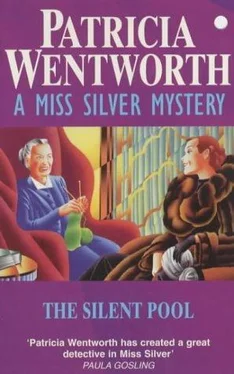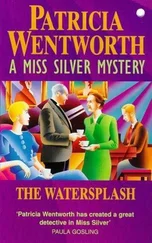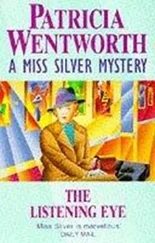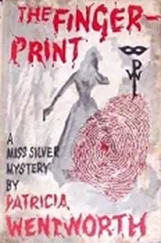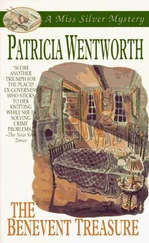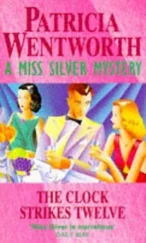Patricia Wentworth - The Silent Pool
Здесь есть возможность читать онлайн «Patricia Wentworth - The Silent Pool» весь текст электронной книги совершенно бесплатно (целиком полную версию без сокращений). В некоторых случаях можно слушать аудио, скачать через торрент в формате fb2 и присутствует краткое содержание. Жанр: Классический детектив, на английском языке. Описание произведения, (предисловие) а так же отзывы посетителей доступны на портале библиотеки ЛибКат.
- Название:The Silent Pool
- Автор:
- Жанр:
- Год:неизвестен
- ISBN:нет данных
- Рейтинг книги:3 / 5. Голосов: 1
-
Избранное:Добавить в избранное
- Отзывы:
-
Ваша оценка:
- 60
- 1
- 2
- 3
- 4
- 5
The Silent Pool: краткое содержание, описание и аннотация
Предлагаем к чтению аннотацию, описание, краткое содержание или предисловие (зависит от того, что написал сам автор книги «The Silent Pool»). Если вы не нашли необходимую информацию о книге — напишите в комментариях, мы постараемся отыскать её.
The Silent Pool — читать онлайн бесплатно полную книгу (весь текст) целиком
Ниже представлен текст книги, разбитый по страницам. Система сохранения места последней прочитанной страницы, позволяет с удобством читать онлайн бесплатно книгу «The Silent Pool», без необходимости каждый раз заново искать на чём Вы остановились. Поставьте закладку, и сможете в любой момент перейти на страницу, на которой закончили чтение.
Интервал:
Закладка:

Patricia Wentworth
The Silent Pool
Miss Silver – #25, 1956
Chapter One
It was Miss Silver’s practice to open her letters at the breakfast table. True to the maxims instilled into her when still extremely young, she was in the habit of giving duty the first place in her life. A call for her personal or professional assistance, whether by post or telephone, would therefore naturally precede any dalliance with the morning papers, of which she took two – one of that aloof and lofty character which made even the most world-shaking events seem to be taking place at an immense distance and to have very little bearing upon daily life; the other frankly given over to headlines, a lively presentment of politics, and such immediate and pressing matters as who had been married, murdered, or divorced.
She picked up the letters and sorted them out. There was one from her niece Ethel Burkett, who was the wife of a bank manager in the Midlands. She opened it at once. Roger, the youngest of the three boys, had not been very well when Ethel wrote last, and it was a relief to read in reassuring phrases that he was now quite himself again and had returned to school. A piece of family news followed. Mrs Burkett wrote:
‘You will, I know, be delighted to hear of the safe arrival of Dorothy’s twins, a boy and a girl. They are fine babies, and she and Jim are perfectly delighted. Really, after ten years of having no children and being dreadfully unhappy about it, they haven’t done so badly, have they – first a boy and then a girl, and now both together. Personally I feel that they should stop there!’
Jim being Ethel Burkett’s brother and Miss Silver’s nephew, this was intelligence of a most gratifying nature. Two coatees and three pairs of infant socks had already been despatched to Dorothy Silver, but it now became imperative that the gift should be doubled. She remembered with pleasure that she had plenty of the sock wool, and that only yesterday she had noticed some very attractive pale blue balls in Messiter’s wool department which would be just the thing for the little coatees.
Leaving the rest of Ethel’s letter to be read at her leisure, she turned to one from her other niece, Gladys. It contained, as she had expected, a number of complaints and more than one hint that an invitation to stay with ‘dear Auntie’ would be some slight mitigation of her lot. Miss Silver had a kind heart, but it did not dispose her to pity Gladys. She had married of her own free will. Her husband was a most worthy man if rather dull. He had been no less so when she chose to marry him. He was now not quite so well off – very few people were. But Gladys, having married to escape the necessity of working for her living, considered it a grievance that she was now obliged to sweep, and dust, and cook. She did all three very badly, and Miss Silver felt a good deal of sympathy for Andrew Robinson.
A glance at the untidy scribbled page having assured her that the letter was just what she expected, she laid it aside and took up a letter with the Ledbury postmark. She knew Ledshire well and had many friends there, but this large, distinctive handwriting was strange to her, the paper thicker and more expensive than most people could now afford. She straightened out a double sheet and read:
‘Mrs Smith presents her compliments to Miss Maud Silver and would be glad if she could make an appointment for some time between 10 a.m., and noon tomorrow, Thursday. She expects to be in London, and will ring up from her hotel to confirm the appointment and decide upon the hour.’
Miss Silver observed the sheet with interest. It had been cut down by a couple of inches, obviously in order to remove an address. The writing showed signs of hurry, and there were two blots. She decided that it might be interesting to see this Mrs Smith and to find out what she wanted.
But she had time not only to finish her breakfast and to read, first dear Ethel’s letter, so warm, so full of the details of a happy family life, and afterwards with frowning distaste that from Gladys Robinson, which differed only from many of her previous efforts in that it went so far as actually to ask for money – ‘Andrew keeps me so short, and if I take it out of the housekeeping he goes on dreadfully. He doesn’t seem to think that I must have clothes! And he is quite disagreeable if I so much as speak to anyone else! So if you possibly could, dear Auntie-’
Miss Silver gathered up her letters and the newspapers and went through to the sitting-room of her flat. She hardly ever came into it after the briefest absence without feeling a gush of gratitude to what she called Providence for having enabled her to achieve this modest comfort. During twenty years of her life she had expected nothing more than to be a governess in other people’s houses, and to retire eventually upon some very small pittance. Then suddenly there had opened before her a completely new way of life. Equipped with strong moral principles, a passion for justice, and a gift for reading the human heart, she had entered upon a career as a private detective. She was not unknown to Scotland Yard. Chief Detective Inspector Lamb had a high esteem for her. If it was sometimes tinged with exasperation, this did not interfere with an old and sincere friendship. Inspector Frank Abbott in moments of irreverence declared that his esteemed Chief suspected ‘Maudie’ of powers alarmingly akin to witchcraft – but then it is notorious that this brilliant officer sometimes allows himself to talk in a very extravagant manner.
Miss Silver having laid the newspapers upon the top of a small revolving book-case, put her nieces’ letters into a drawer of the writing-table and deposited Mrs Smith’s communication upon the blotter.
The room was a pleasant one. To the modern eye it contained too many pictures, too much furniture, and far too many photographs. The pictures, in frames of yellow maple, were reproductions of Victorian masterpieces – Sir John Millais’ Bubbles and the Soul’s Awakening , Mr G. F. Watts’ Hope , and a melancholy Landseer Stag; the chairs in walnut profusely carved but surprisingly comfortable with their curved arms and capacious laps; the photographs almost a guide to the fashions of the past twenty years in much older frames, relics from an age devoted to silver filigree and plush. These photographs were, in fact, a record of Miss Silver’s cases. In serving the ends of justice she had saved the good name, the happiness, sometimes even the life of these people who smiled at her from the mantelpiece, from the top of the book-case, and from any other place where it had been possible to find room for them. There were a great many pictures of the babies for whom she had knitted shawls and socks and little woolly coatees. As she stood by the writing-table she looked about her with pleasure. The sun slanted in between her peacock-blue curtains and just touching the edge of the carpet, showed how well the colours matched.
As she pulled out the writing-chair and sat down, the telephone bell rang. Lifting the receiver, she heard a deep voice say, ‘Is that 15 Montague Mansions?’
She said, ‘Yes.’
It was a woman’s voice, though almost deep enough to have been a man’s. It spoke again.
‘Is that Miss Maud Silver?’
Miss Silver said, ‘Speaking.’
The voice went on.
‘You will have had my letter by now – asking for an appointment – Mrs Smith.’
‘Yes, I have had it’
‘When can I see you?’
‘I am free now.’
‘Then I will come at once. I suppose it will take me about twenty minutes. Good-bye.’ The receiver was hung up. Miss Silver replaced her own. Then she took up her pen and began to write a short but severe letter to her niece Gladys.
Читать дальшеИнтервал:
Закладка:
Похожие книги на «The Silent Pool»
Представляем Вашему вниманию похожие книги на «The Silent Pool» списком для выбора. Мы отобрали схожую по названию и смыслу литературу в надежде предоставить читателям больше вариантов отыскать новые, интересные, ещё непрочитанные произведения.
Обсуждение, отзывы о книге «The Silent Pool» и просто собственные мнения читателей. Оставьте ваши комментарии, напишите, что Вы думаете о произведении, его смысле или главных героях. Укажите что конкретно понравилось, а что нет, и почему Вы так считаете.
